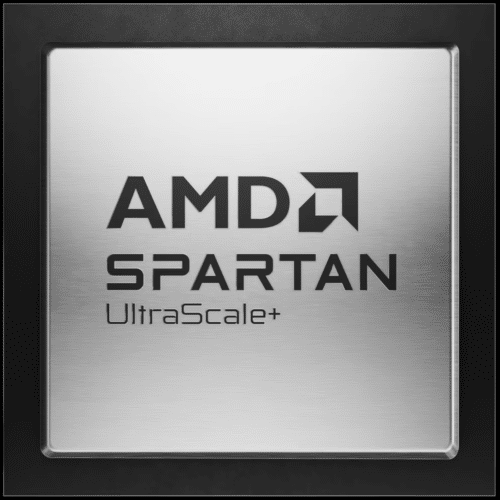The FPGA family offers cost-efficient edge computing solutions with high I/O counts and security features, reducing power consumption through advanced technology.

AMD has announced the AMD Spartan UltraScale+ FPGA family, an addition to the range of AMD FPGAs and adaptive SoCs. Designed for cost and power efficiency, the Spartan devices cater to applications at the edge. These devices have the I/O to logic cell ratio for FPGAs built with 28 nm or smaller process technology, offering lower total power consumption than the previous generation and featuring a set of security features in the AMD Portfolio.
The FPGAs are designed for edge computing, offering I/O counts and interfaces to connect with various devices or systems, addressing the increasing number of sensors and connected devices. These FPGAs have the I/O to logic cell ratio for devices built on 28nm and below process technology, with up to 572 I/Os and support for voltages up to 3.3V, enabling connectivity for edge sensing and control applications. The 16nm fabric and a range of packaging options, starting as tiny as 10x10mm, provide I/O density in a compact form. The FPGA portfolio offers scalability from cost-optimized to midrange and high-end products.
The FPGAs support Post-Quantum Cryptography with NIST-approved algorithms for IP protection against cyber threats. A physical, unclonable function gives each device a unique fingerprint for added security. PPK/SPK key support manages obsolete or compromised security keys, and differential power analysis protects against side-channel attacks. The devices also have a permanent tamper penalty to deter misuse. Enhanced single-event upset performance ensures fast and secure configuration with increased reliability.
The company claims that the Spartan family is expected to reduce power consumption compared to the 28nm Artix 7 family, thanks to 16nm FinFET technology and hardened connectivity.
“For over 25 years, the Spartan FPGA family has helped power some of humanity’s finest achievements, from lifesaving automated defibrillators to the CERN particle accelerator advancing the boundaries of human knowledge,” said Kirk Saban, corporate vice president of Adaptive and Embedded Computing Group, AMD.
For more information, click here.




